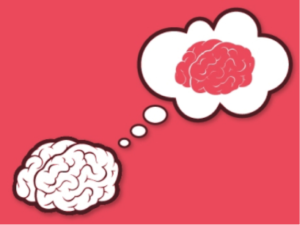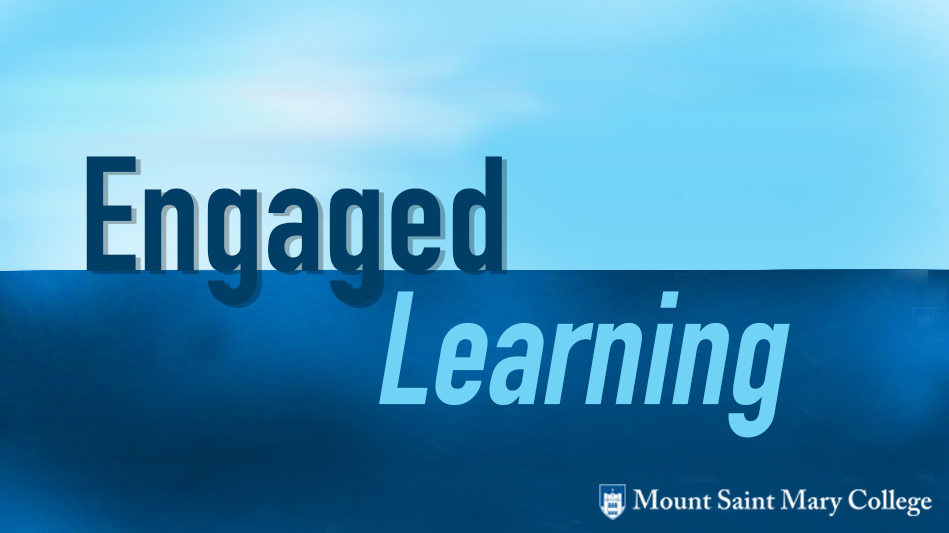by Leslie A. Hoffman, PhD, Assistant Professor of Anatomy & Cell Biology, Indiana University School of Medicine – Fort Wayne
The third post in this guest editor miniseries examines how metacognition evolves (or doesn’t) as students progress into professional school. Despite the academic success necessary to enter into professional programs such as medical school or dental school, there are still students who lack the metacognitive awareness/skills to confront the increased academic challenges imposed by these professional programs. In this post Dr. Leslie Hoffman reflects on her interactions with medical students and incorporates data she has collected on self-directed learning and student reflections on their study strategies and exam performance. ~Audra Schaefer, PhD, guest editor
————————————————————————————————-
The beginning of medical school can be a challenging time for medical students. As expected, most medical students are exceptionally bright individuals, which means that many did not have to study very hard to perform well in their undergraduate courses. As a result, some medical students arrive in medical school without well-established study strategies and habits, leaving them overwhelmed as they adjust to the pace and rigor of medical school coursework. Even more concerning is that many medical students don’t realize that they don’t know how to study, or that their study strategies are ineffective, until after they’ve performed poorly on an exam. In my own experience teaching gross anatomy to medical students, I’ve found that many low-performing students tend to overestimate their performance on their first anatomy exam (Hoffman, 2016). In this post I’ll explore some of the reasons why many low-performing students overestimate their performance and how improving students’ metacognitive skills can help improve their self-assessment skills along with their performance.
Metacognition is the practice of “thinking about thinking” that allows individuals to monitor and make accurate judgments about their knowledge, skills, or performance. A lack of metacognitive awareness can lead to overconfidence in one’s knowledge or abilities and an inability to identify areas of weakness. In medicine, metacognitive skills are critical for practicing physicians to monitor their own performance and identify areas of weakness or incompetence, which can lead to medical errors that may cause harm to patients. Unfortunately, studies have found that many physicians seem to have limited capacity for assessing their own performance (Davis et al., 2006). This lack of metacognitive awareness among physicians highlights the need for medical schools to teach and assess metacognitive skills so that medical students learn how to monitor and assess their own performance.

In my gross anatomy course, I use a guided reflection exercise that is designed to introduce metacognitive processes by asking students to think about their study strategies in preparation for the first exam and how they are determining whether those strategies are effective. The reflective exercise includes two parts: a pre-exam reflection and a post-exam reflection.
The pre-exam reflection asks students to identify the content areas in which they feel most prepared (i.e. their strengths) and the areas in which they feel least prepared (i.e. their weaknesses). Students also discuss how they determined what they needed to know for the upcoming exam, and how they went about addressing their learning needs. Students were also asked to assess their confidence level and make a prediction about their expected performance on the upcoming exam. After receiving their exam scores students completed a post-exam reflection, which asked them to discuss what, if any, changes they intended to make to their study strategies based on their exam performance.
My analysis of the students’ pre-exam reflection comments found that the lowest performing students (i.e. those who failed the exam) often felt fairly confident about their knowledge and predicted they would perform well, only to realize during the exam that they were grossly underprepared. This illusion of preparedness may have been a result of using ineffective study strategies that give students a false sense of learning. Such strategies often included passive activities such as re-watching lecture recordings, re-reading notes, or looking at flash cards. In contrast, none of the highest performing students in the class over-estimated their exam grade; in fact, many of them vastly underestimated their performance. A qualitative analysis of students’ post-exam reflection responses indicated that many of the lowest performing students intended to make drastic changes to their study strategies prior to the next exam. Such changes included utilizing different resources, focusing on different content, or incorporating more active learning strategies such as drawing, labeling, or quizzing. This suggests that the lowest performing students hadn’t realized that their study strategies were ineffective until after they’d performed poorly on the exam. This lack of insight demonstrates a deficiency in metacognitive awareness that is pervasive amongst the lowest performing students and may persist in these individuals beyond medical school and into their clinical practice (Davis et al., 2006).
So how can we, as educators, improve medical students’ (or any students’) metacognitive awareness to enable them to better recognize their shortcomings before they perform poorly on an exam? To answer this question, I turned to the highest performing students in my class to see what they did differently. My analysis of reflection responses from high-performing students found that they tended to monitor their progress by frequently assessing their knowledge as they were studying. They did so by engaging in self-assessment activities such as quizzing, either using question banks or simply trying to recall information they’d just studied without looking at their notes. They also tended to study more frequently with their peers, which enabled them to take turns quizzing each other. Working with peers also provided students with feedback about what they perceived to be the most relevant information, so they didn’t get caught up in extraneous details.
The reflective activity itself is a technique to help students develop and enhance their metacognitive skills. Reflecting on a poor exam performance, for example, can draw a student’s attention to areas of weakness that he or she was not able to recognize, or ways in which his or her preparation may have been inadequate. Other techniques for improving metacognitive skills include the use of think-aloud strategies in which learners verbalize their thought process to better identify areas of weakness or misunderstanding, and the use of graphic organizers in which learners create a visual representation of the information to enhance their understanding of relationships and processes (Colbert et al., 2015).
Ultimately, the goal of improving medical students’ metacognitive skills is to ensure that these students will go on to become competent physicians who are able to identify their areas of weakness, create a plan to address their deficiencies, and monitor and evaluate their progress to meet their learning goals. Such skills are necessary for physicians to maintain competence in an ever-changing healthcare environment.
Colbert, C.Y., Graham, L., West, C., White, B.A., Arroliga, A.C., Myers, J.D., Ogden, P.E., Archer, J., Mohammad, S.T.A., & Clark, J. (2015). Teaching metacognitive skills: Helping your physician trainees in the quest to ‘know what they don’t know.’ The American Journal of Medicine, 128(3), 318-324.
Davis, D.A., Mazmanian, P.E., Fordis, M., Harrison, R., Thorpe, K.E., & Perrier, L. (2006). Accuracy of physician self-assessment compared with observed measures of competence: A systematic review. JAMA, 296, 1094-1102. Hoffman, L.A. (2016). Prediction, performance, and adjustments: Medical students’ reflections on the first gross anatomy exam. The FASEB Journal 30 (1 Supplement): 365.2.




